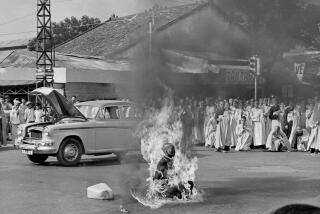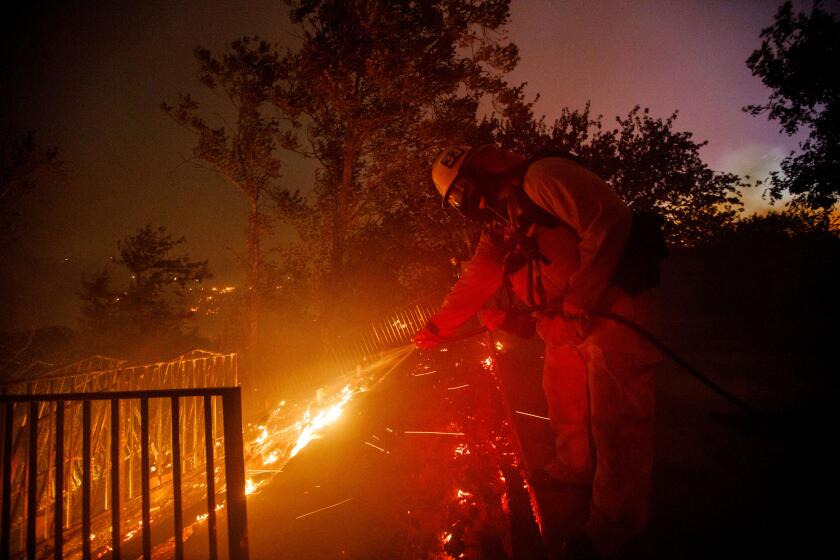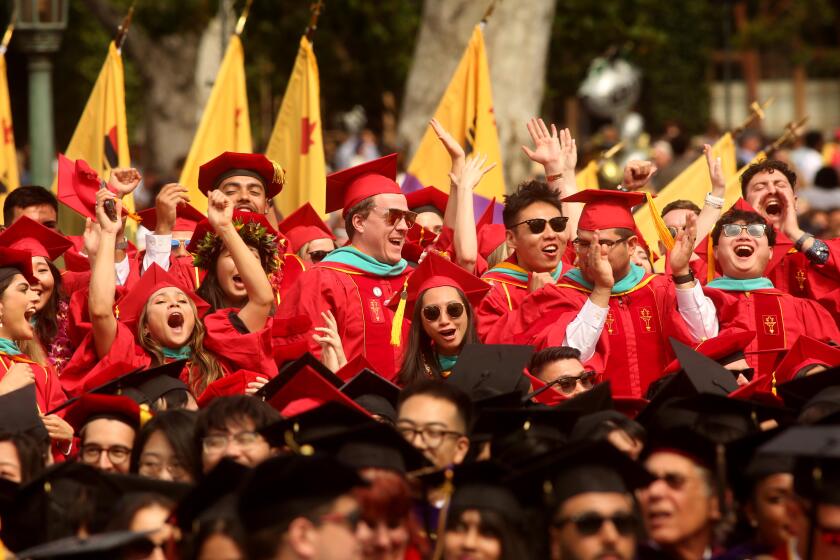Opinion: Reelection will be too easy for Garcetti, Galperin and Feuer
For several Los Angeles elected officials, the March primary will be an incumbent’s cakewalk.
City Atty. Mike Feuer and City Controller Ron Galperin are unopposed. So is West San Fernando Valley Councilman Bob Blumenfield.
Mayor Eric Garcetti has 10 challengers, none of whom poses a serious threat to his reelection. Half of his fellow candidates have run for the job before and barely made a ripple in the results. Only one challenger, Mitchell Schwartz, has raised 1/10th of the money Garcetti has collected from donors.
This isn’t unusual in L.A. city politics, where incumbents raise lots of money to scare off potential rivals. But it is disappointing because no competition means no campaigning, no debates and no accountability with voters.
Unchallenged incumbents face little scrutiny of their records. Galperin, for example, will skate to reelection without having to explain why he’s become the shrinking violet of City Hall, rarely heard from and uninfluential in important decisions.
Elections are an opportunity to take the pulse of the community. They shouldn’t be a cakewalk for incumbents.
Feuer will not have to answer questions about how he is managing criminal justice system reforms, such as Proposition 47, passed by voters. That doesn’t serve Angelenos, who deserve to know what their elected representatives are doing. And it doesn’t serve elected officials, who may welcome the opportunity to tell voters what they’ve done.
Will Garcetti be willing to engage with his challengers and voters on his record? When Mayor Antonio Villaraigosa was running for reelection against a similarly large and unknown group of challengers (some of whom are on the ballot again in March), he refused to debate. Not surprisingly, the March 2009 primary recorded the lowest voter turnout for a Los Angeles mayoral election, at just 17.9%.
Next year’s primary is especially important because city and Los Angeles Unified School District board candidates elected in 2017 will serve 5 1/2 years in office rather than the standard four-year term. That’s because voters decided in 2015 to move local elections from March (with a May runoff) in odd-numbered years to June (with a November runoff) in even-numbered years. The idea is that consolidating local elections with presidential and gubernatorial elections will boost voter turnout. The new election cycles will take effect in 2020 and 2022.
Not all incumbents have will have such an easy reelection, though. Councilmen Gil Cedillo, Paul Koretz, Curren Price, Mike Bonin, Mitch O’Farrell and Joe Buscaino all have challengers. While the incumbents have a huge fundraising advantage, some of the challengers are well-established community activists who will press the sitting council members on substantive issues in their districts.
Cedillo, for example, has angered bicycling proponents by canceling plans for bike lanes in his district. He’s facing a challenge from Josef Bray-Ali, an outspoken bicycle advocate. Bonin has faced opposition to putting homeless housing, bathrooms and storage in Venice, which has a large homeless population. He’s being challenged by Venice Stakeholders Assn. President Mark Ryavec, who has complained that Bonin’s initiatives will attract more homeless people to the beach community.
Voters in council districts with contested elections should expect — should demand, even — debates and forums so that the critical issues of the city, from homelessness to safe streets to development, are discussed. Elections are an opportunity to take the pulse of the community. They shouldn’t be a cakewalk for incumbents.
For more opinions, follow me @kerrycavan
More to Read
A cure for the common opinion
Get thought-provoking perspectives with our weekly newsletter.
You may occasionally receive promotional content from the Los Angeles Times.







